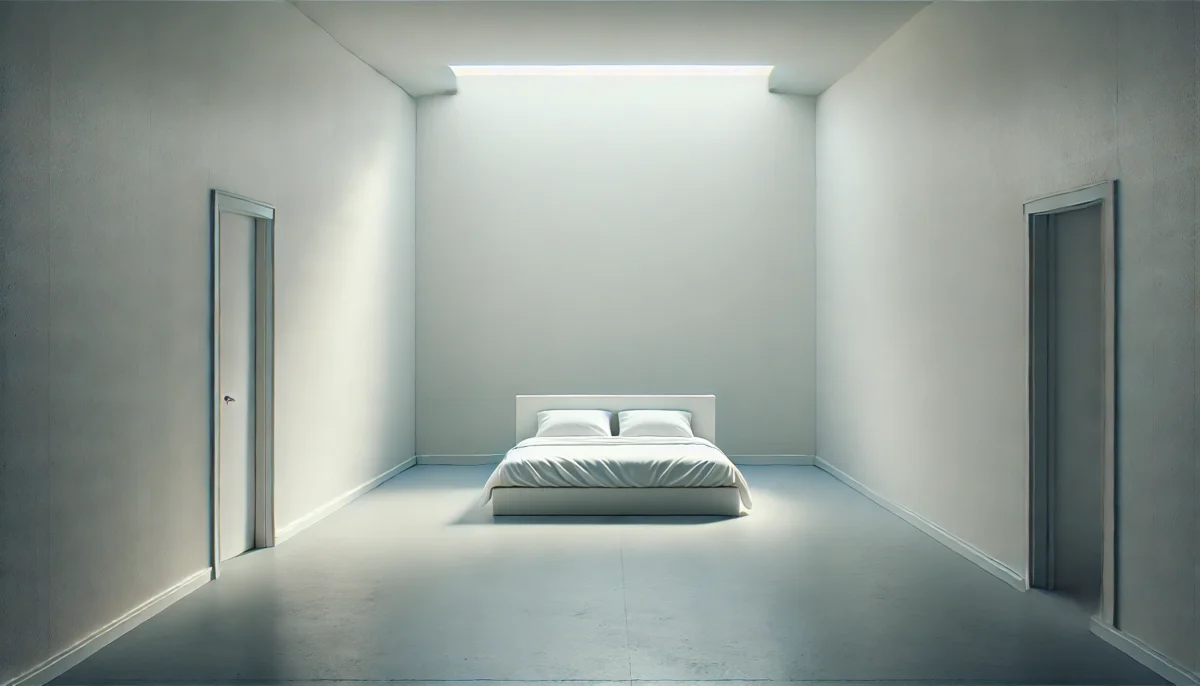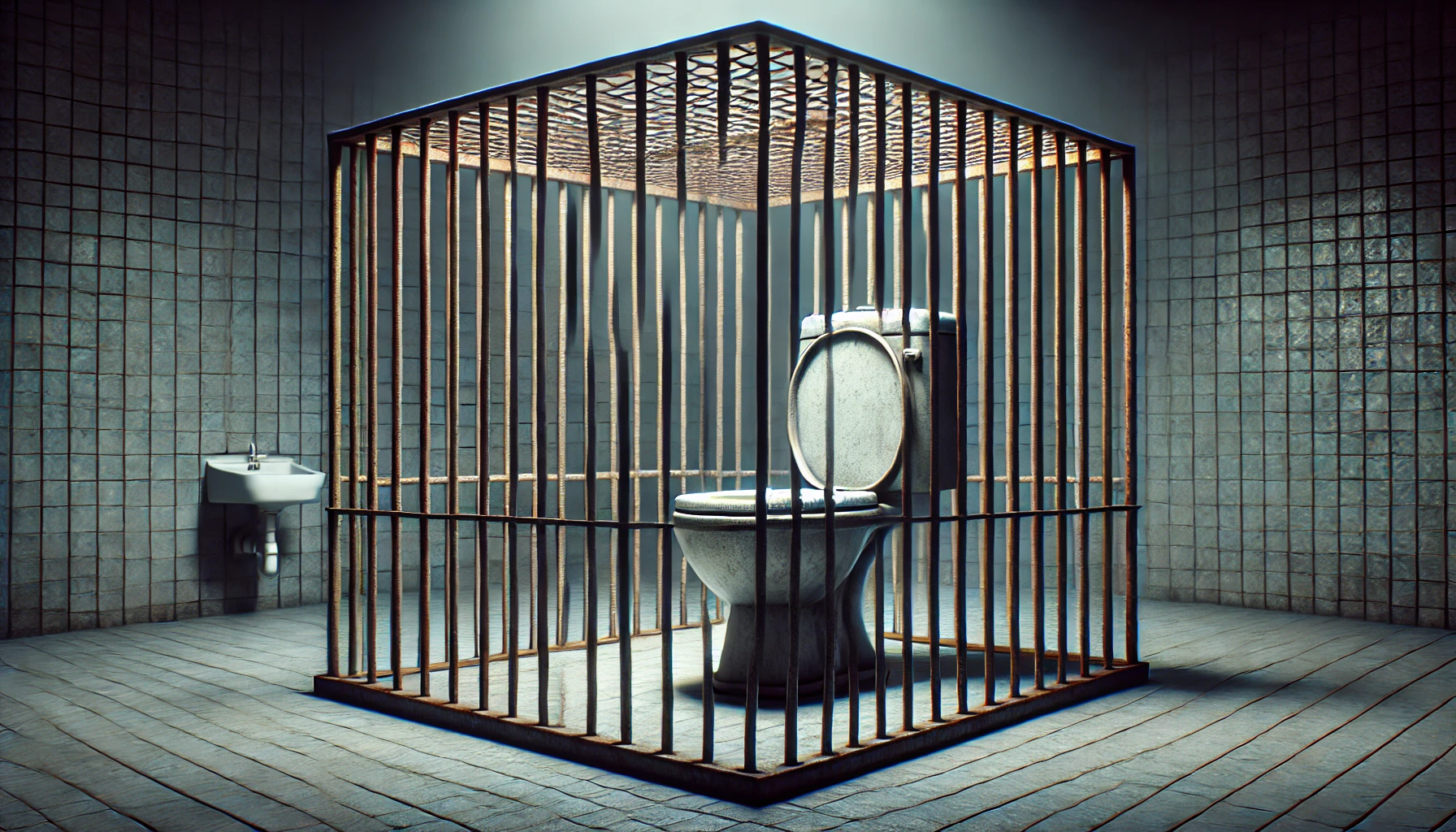Dreams about empty rooms often linger in our minds after waking. Though they may seem simple, these bare dreamscapes hold deep psychological symbolism. The empty room dream meaning often speaks to potential, emotional transitions, and the quiet spaces within us that long to be understood. What looks empty on the surface is often full of meaning beneath.
Want to decode and track your dreams easily? Try Dreamly — your intelligent dream journal on Android and iOS.

The symbolic meaning of an empty room
Rooms in dreams usually represent aspects of the self — each one holding memories, emotions, or parts of our identity. When that room appears empty, the dream is drawing your attention to space: something that’s been cleared away or not yet defined. In psychological terms, emptiness is not absence but potential. It’s an invitation to fill that space consciously rather than letting it echo with uncertainty.
Many dream experts interpret an empty room as a sign of transition. Perhaps a chapter of your life is ending, or you’re unconsciously preparing for new experiences. Like a blank canvas awaiting paint, the empty room reflects the creative and emotional possibilities that haven’t yet taken form. If you felt peace within the emptiness, the dream may symbolize clarity and readiness for change. If it felt cold or lonely, it could mirror a temporary sense of loss or detachment that invites healing.
Emotional tones and personal reflection
How you feel inside the empty room tells the real story. A vast, echoing space might reflect freedom or overwhelm—too many choices, too much openness. A small or confined room, on the other hand, can suggest protection, introspection, or a need for simplicity. When the room is one you recognize from waking life—your home, your office, or a childhood space—its emptiness often signals a reevaluation of that part of your identity. Something is shifting, and your psyche is clearing the stage for what’s next.
Dream researcher Dr. Helen Mittermeier explains, “Empty rooms often appear when we’re releasing old emotions or roles. They offer a symbolic safe space to let go and begin again.” In that sense, emptiness is not a void but a preparation for renewal—a kind of psychological cleansing before reconstruction.
Jungian and cultural perspectives
In Jungian psychology, an empty room can represent the Self—the total psyche beyond the conscious ego. The emptiness invites you to meet your deeper, unknown aspects and integrate them. Culturally, the symbolism of space resonates with the Japanese concept of ma—the beauty of emptiness that gives form to what surrounds it. In Western minimalism, too, empty space reflects clarity and mindfulness. Both views suggest that what’s missing may hold just as much meaning as what’s present.
Common dream variations
Sometimes you might find yourself searching for something in an empty room, symbolizing an inner quest for answers or meaning. If you can’t leave the room, the dream could reveal feelings of being stuck or emotionally isolated. But if you’re furnishing or decorating the room, it’s a clear sign of creation—you’re building new aspects of your life or identity. Each variation points to your relationship with change: are you resisting it, exploring it, or shaping it?
Therapeutic insights and growth
Empty room dreams are rich tools in therapy because they invite introspection. In Gestalt and art therapy, clients are often asked to imagine or draw the empty space, gradually adding what feels needed. This process transforms emptiness into expression and helps integrate what was previously unconscious. Psychologist Marcia Emery notes, “The empty room is an invitation. It’s a psychological space where new awareness can take root.”
How to interpret your empty room dream
After such a dream, reflect gently: what did the emptiness feel like? Comforting, frightening, peaceful, or unfamiliar? Each feeling offers clues to your current emotional state. Ask yourself what areas of life feel “cleared out” or what new possibilities might be waiting to move in. Keeping a dream journal helps track recurring themes—you might notice empty spaces appearing whenever you’re at the threshold of change.
Bottom line
The empty room dream meaning is ultimately about transformation through emptiness. It invites you to find peace in open space, to honor what has ended, and to consciously decide what deserves to fill the next chapter of your inner world. Emptiness is not nothing—it’s where something new begins.
Ready to explore your own dream symbols? Start Dreamly — your intelligent dream companion — on Android or iOS.







